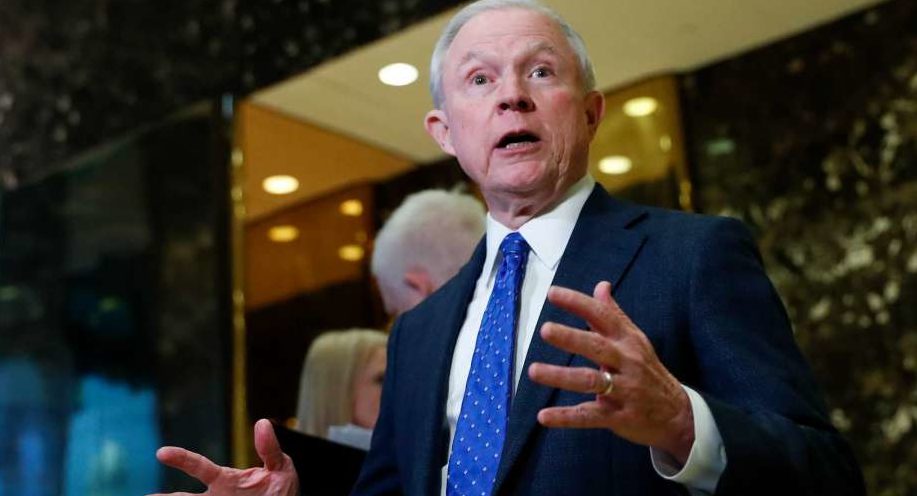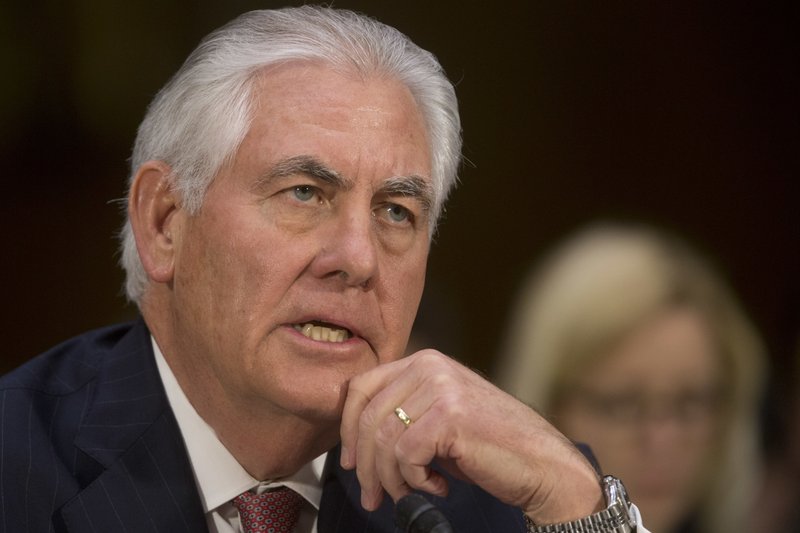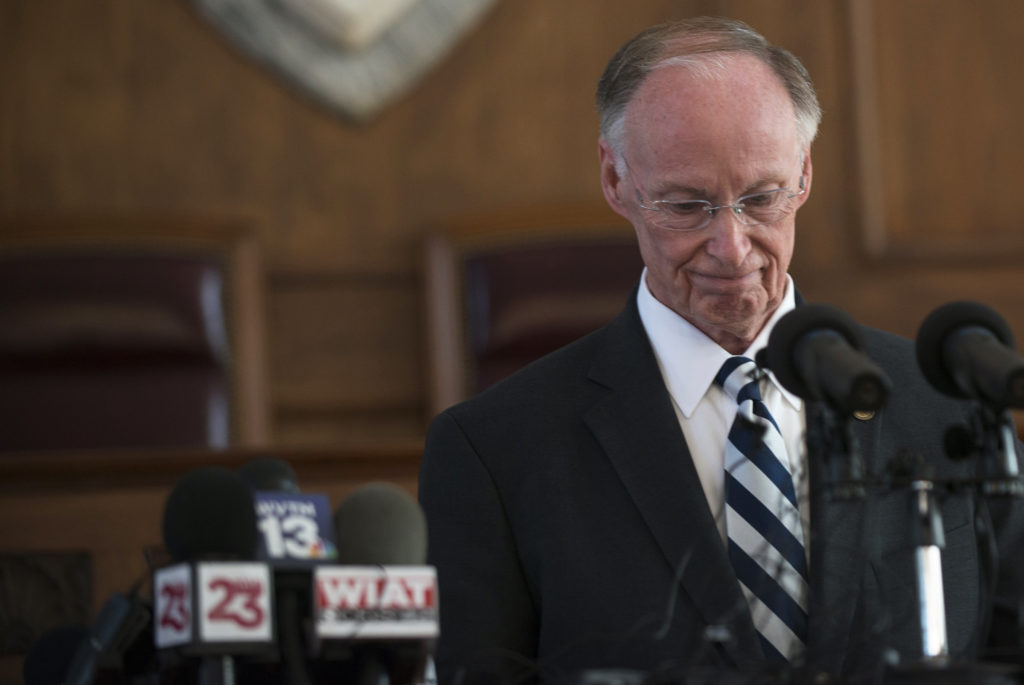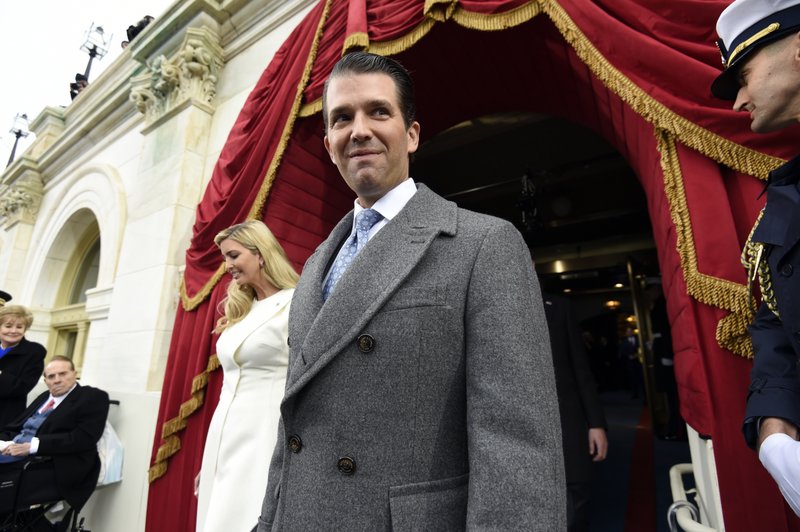Mark Leputa is an Alabama Maker applying glaciers to glass

Glass artist Mark Leputa lived in New Zealand at one point. He worked, then traveled the world until the money ran out, then worked another job, then traveled some more. Then one day he fell in love … with glass! “I had just graduated college and traveled to New Zealand,” he said. “The trip was supposed to be six months, but it ended up being three years because I worked at a glass studio and absolutely loved it.” Leputa returned recently from the Netherlands, where he had a solo exhibit titled “Carving at a Glacial Pace.” The work at the show was inspired by glaciers and the beautiful icy scenes all over that part of the world. Leputa has had shows in Florida, Texas, Colorado, Wyoming and Europe. After New Zealand, Leputa came back home to the U.S. and settled in Fort Payne. “When I decided to move back to the States, I looked all over the Northeast, places like Pennsylvania and New York, but Fort Payne was by far the best fit,” Leputa said. “It’s not like living in a big city that’s oversaturated, like in the Northeast. You still have the conveniences of the city, but the space and slow pace of a small town.” Leputa’s work involves manipulations of the glass. First, he heats and molds it to the shape he wants, and then lets it cool. Later, he carves it and adds different textures and layers of special effects to give it depth. His collection for the Netherlands exhibit, with its deep textures and blue tones, resembles glaciers. “Being an artist and working for myself certainly isn’t the best way to make a living,” he said. “You know the term ‘starving artist’; we’re not starving, but close to it sometimes. But being able to do what you love is such an important thing.” Life and art collide for Leputa, who measures things by his passion, love and fulfillment. “It’s my passion,” he said. “Why work a 40-hour week just so you have the money to do what you love, when you can just do what you love?” The Product: Works of art made of glass. Take home: Original glass sculptures (prices vary). Mark Leputa Glass Sculpture, http://www.markleputa.com Republished with permission of Alabama NewsCenter.
Alabama exports surging in unexpected corners of the world

It’s clear that 2016 was a stellar year for Alabama exports, with rising shipments in a number of markets worldwide, signaling even more optimism for the future. The top five destinations for state goods and services – Canada, China, Germany, Mexico and the United Kingdom – remained relatively unchanged from 2015 and most showed year-over-year growth. Overall, Alabama-made goods were shipped to 189 countries. A number of them, while not among the top five, showed significant growth in 2016, including Kuwait, Russia, Taiwan and the United Arab Emirates. The Alabama Department of Commerce is always studying trade trends among state businesses and manufacturers, using the information to plan seminars and trips aimed at helping companies boost their export business, said Hilda Lockhart, director of Commerce’s Office of International Trade. Economic engine With Alabama’s 2016 exports reaching a record $20.55 billion, increasing 6.4 percent from the previous year, officials are looking to build on that momentum, Lockhart said. “We know rising exports for Alabama companies in overseas markets means greater potential for new jobs and investment back home,” Lockhart said. “International trade is truly a local economic engine, and Alabama workers and communities benefit from the growth.” U.S. Commerce Department figures show the state’s exports have risen 15 percent since 2011 and 48 percent since 2006. Vehicles are the state’s top export, by a large margin. Other key categories include chemicals, primary metals, paper products and non-electrical machinery, a category that includes combustion engines, agricultural machinery, metalworking machine tools and much more. Lockhart offered a closer look at some of the fastest-growing markets for Alabama exports, and what’s driving them: KUWAIT: Alabama’s exports to the Persian Gulf country increased to $104.9 million in 2016, a 285 percent spike from the previous year. The largest increases were in fabricated metal products, chemicals and paper. “This year Alabama was Kuwait’s No. 1 trading partner in the nation for fabricated metal products, perhaps due to the country’s recent expenditures on various hydrocarbon and petrochemical refineries, such as the $10 billion Olefins 3 plant,” Lockhart said. Currently in the pre-execution phase, the Olefins 3 plant will produce 1.4 million tons of ethylene a year when it is completed. The petrochemical is commonly used in the manufacturing process. RUSSIA: Shipments of state exports to Russia rebounded in 2016 to $102.1 million, after a poor showing the previous year, with major increases in the export of non-electrical machinery, chemicals and paper. Alabama was Russia’s No. 5 trading partner among U.S. states for non-electrical machinery products.Russia’s demand for machinery is “driven by the government’s strategy to modernize Russian industry across several sectors, including power generation, transportation, defense, automotive and aerospace,” according to the U.S. Foreign Commercial Service. Lockhart said the drop in exports in 2015 likely occurred because of the contraction in the price of oil that year, which caused a recession in Russia and other oil-producing countries. TAIWAN: Exports from Alabama to Taiwan nearly doubled in 2016, increasing to approximately $200 million. The largest gains were in chemicals, computer and electronic products, and paper. “Chemical exports alone accounted for more than half of the 2016 total, showing a two-year increase from $19.6 million in 2014 to $102.7 million in 2016,” Lockhart said. The state was Taiwan’s No. 6 trading partner in the nation for chemicals, predominantly in the category of basic chemicals, which include industrial gases used in the semiconductor production process. Lockhart said the semiconductor industry, including manufacturing, design and packaging, is a cornerstone of the Taiwanese IT economy, so it is likely that the increased exports are feeding into this sector. UAE: Alabama firms shipped $467.8 million in exports to the United Arab Emirates in 2016, an increase of more than 100 percent compared to exports just two years earlier. Much of the growth took place in the categories of transportation equipment, non-electrical machinery and chemicals. The state was the UAE’s No. 5 trading partner in the U.S. for transportation equipment, with this category alone accounting for $396.2 million of the export total for the year. “Aerospace products make up the bulk of these transportation equipment exports as the UAE develops its burgeoning satellite and Mars mission programs, expands its military and increases investment in the commercial airline industry,” Lockhart said. Meanwhile, other up and coming markets have shown significant growth over the past five years, and they could be potential targets of new, increased efforts to fuel trade, Lockhart said. The countries include Vietnam, Oman, the Bahamas, Denmark, Finland, Kenya, Liberia, Hungary and Bosnia-Herzegovina. This story originally appeared on the Alabama Department of Commerce’s Made in Alabama website. Republished with permission of Alabama NewsCenter.
Aerojet Rocketdyne to build AR1 rocket engine, add 800 Alabama jobs in expansion

Aerojet Rocketdyne announced plans Monday to expand its presence in Huntsville with a new state-of-the-art manufacturing facility for the company’s AR1 rocket engine and the relocation of engineering, program management, and other jobs. Aerojet Rocketdyne’s overall growth plans for Huntsville call for the California-based company to add 800 jobs to support the U.S. space and defense programs for the next quarter century and beyond. As part of a strategic Competitive Improvement Program, Aerojet Rocketdyne previously selected Huntsville as the home of its Defense division headquarters and its Rocket Shop advanced programs. “We are two years into the first phase of our CIP affordability drive and the consolidation progress, and overhead cost reductions achieved to date have exceeded our expectations,” Aerojet Rocketdyne CEO and President Eileen Drake said. “We intend to build on this success by expanding our CIP-related consolidation efforts so we can deliver the value our customers demand and position our company for further growth.” New rocket engine Aerojet Rocketdyne has been developing the AR1 rocket engine since 2014 as a replacement for Russian engines used on the Atlas V rocket, which is assembled in Decatur by the United Launch Alliance. In addition, the AR1 is being advanced for use on the Space Launch System (SLS), NASA’s Mars rocket now under development at Marshall Space Flight Center in Huntsville. The AR1 production facility in Huntsville will include advanced functions such as additive manufacturing (3-D printing), composites fabrication, and research and development. The company expects the facility to be ready for production in mid-2019. “Huntsville’s legacy in the development of rocket propulsion systems makes it the ideal choice for Aerojet Rocketdyne’s AR1 rocket engine assembly center and its advanced manufacturing and engineering operations,” said Greg Canfield, secretary of the Alabama Department of Commerce. “Aerojet Rocketdyne’s decision to base these cutting-edge activities in Huntsville is a powerful endorsement of the capabilities found there,” he said. The company said it plans to move all Defense-related program management, engineering and support positions to Huntsville by the end of 2018. Some positions at a Gainesville, Virginia, facility that is being closed will also move to Huntsville. “We believe these actions are essential for the performance of our business and the growth of the company. The results from this initiative will benefit our valued employees, customers and shareholders alike,” Drake said. ‘Rocket City USA’ Huntsville officials welcomed the company’s expansion news. “This project is another great example of our effort to diversify Huntsville’s economy with high-quality advanced manufacturing, and yet, Aerojet Rocketdyne is here because of Huntsville’s outstanding role in research and defense technology,” said Huntsville Mayor Tommy Battle. “This project works all facets of our economy by marrying R&D with advanced manufacturing. We are both rocket scientists and rocket builders,” he said. Madison County Commission Chairman Dale W. Strong said, “The announcement by Aerojet Rocketdyne today selecting Huntsville, Alabama, to build their rocket engines reaffirms we are and will continue to be Rocket City USA and our world will be better because of this decision.” Aerojet Rocketdyne has worked with Huntsville-based Dynetics on the AR1 rocket engine project. This story originally appeared on the Alabama Department of Commerce’s Made in Alabama website. Republished with permission of Alabama NewsCenter.
White House Press Secretary Sean Spicer suggests that Adolf Hitler didn’t use chemical weapons

White House Press Secretary Sean Spicer suggested Tuesday that Adolf Hitler didn’t use chemical weapons. Hitler killed Jews during the Holocaust using gas chambers at concentration camps. Spicer, comparing Hitler to Syria’s Bashar Assad, said Hitler “didn’t even sink to using chemical weapons.” An April 4 chemical weapons attack in northern Syria left nearly 90 people dead, and the U.S. has blamed Assad. Turkey’s health minister said Tuesday that test results confirm sarin gas was used. Spicer later tried to clarify his statement, saying Hitler didn’t use chemical weapons on his own people “in the same way” as Assad. Republished with permission of The Associated Press.
Jeff Sessions to tour Arizona-Mexico border Tuesday

U.S. Attorney General Jeff Sessions on Tuesday will take a tour of the U.S.-Mexico border during a visit to Arizona. Sessions will tour what is mostly rough terrain along the international border in Nogales, Arizona, about roughly 70 miles (113 kilometers) south of Tucson. Sessions has made immigration enforcement a key Justice Department priority, saying he will speed up deportations of immigrants in the country illegally who were convicted of federal crimes. Sessions has also defended federal immigration authorities who make arrests at courthouses, a practice advocates and the California Supreme Court chief justice say impedes on people’s access to justice and deters immigrants from reporting crimes and going to court. The Tucson Sector, which comprises most of Arizona, was once the busiest area for illegal border crossings and drug smuggling, but movement has shifted in the past few years to the Rio Grande Valley in Texas. The Arizona area saw about 65,000 arrests last fiscal year, roughly half the number agents made in 2012, according to Border Patrol data. Marijuana seizures have also dropped by about 28 percent from 1 million pounds in 2012 to 728,000 last year. In March, Sessions said that the Justice Department will expand an existing program aimed at holding deportation hearings for immigrants while they are still in federal prison known as the Institutional Hearing Program. Holding the hearings before the inmates’ sentences are finished would allow the government to deport them immediately when they’re released, as opposed to waiting until they go through an immigration court. Sessions’ proposal would set up 14 federal prisons and six contract facilities for immigration removal proceedings. Following the border tour, Sessions will deliver a keynote speech at an International Association of Chiefs of Police conference in Litchfield Park, Arizona. He’ll also speak with service members at Luke Air Force Base near Phoenix. Republished with permission of The Associated Press.
What exactly is US Syria policy? Big questions for allies

Seeking support from abroad, the U.S. struggled Monday to explain a hazy Syria strategy that has yet to clarify key questions: whether President Bashar Assad must go, how displaced Syrians will be protected and when America might feel compelled to take further action. Successive attempts by top Trump administration officials to articulate a plan have only furthered the appearance of a policy still evolving, even after the U.S. broke with precedent last week by attacking Assad’s forces. In the absence of answers, other countries seem to be moving ahead on their own terms. British Foreign Secretary Boris Johnson, after a meeting in Italy with U.S. Secretary of State Rex Tillerson, floated the possibility of new sanctions on both the Syrian and Russian militaries, an idea the U.S. has only briefly mentioned. In an unusual announcement for a foreign government, Johnson also said the U.S. could launch more cruise missiles into Syria like the ones President Donald Trump ordered last week in reaction to Assad’s use of chemical weapons. “Crucially, they could do so again,” Johnson said. Tillerson himself raised fresh expectations for aggressive U.S. action — and not only in Syria — as he visited Sant’Anna di Stazzema, a Tuscan village where the Nazis massacred more than 500 civilians during World War II. As he laid a wreath, he alluded to the Syria chemical attack. “We rededicate ourselves to holding to account any and all who commit crimes against the innocents anywhere in the world,” Tillerson said. Though such comments hint at a more activist U.S. foreign policy focused on preventing humanitarian atrocities, Trump has consistently suggested he prefers the opposite approach. His young administration has generally downplayed human rights concerns while promoting an “America First” strategy de-emphasizing the concerns of foreign nations. The uncertain view of U.S. objectives prevailed as Tillerson planned to attend a meeting Tuesday of the “likemindeds” — countries that share a similar approach to resolving Syria’s protracted civil war. The session on the sidelines of the Group of 7 summit in Italy was to include Middle East countries, including Turkey, Saudi Arabia, Jordan and the United Arab Emirates, that share a U.S. interest in resolving the conflict and resisting Iran’s influence in Syria. Tuesday night, Tillerson will fly to Moscow, the first official visit by a Trump Cabinet official to Russia, Assad’s strongest ally. The U.S. has said its Syria strategy centers on persuading President Vladimir Putin to stop supporting Assad. On Monday, the U.S. upped the stakes significantly by accusing Russia of knowing in advance of the chemical attack and using a Russian-operated drone to help cover it up. No component of Trump’s Syria policy has engendered more confusion than Assad’s future — an issue that similarly befuddled the Obama administration, whose once-adamant position that Assad must go softened substantially by the time President Barack Obama left office in January. Leading up to the U.S. missile attack, Trump’s administration had said Assad’s future was up to the Syrian people. Then Trump, the day after the assault, said his thinking about Assad had changed. Tillerson answered a question about effecting regime change by saying the U.S. was organizing a coalition to do just that. Yet after Trump’s retaliatory strike, the position became less clear. Some officials, like Tillerson, said the U.S. was confident Syrians would choose on their own to push Assad aside, while suggesting the U.S. wouldn’t mandate it. U.N. Ambassador Nikki Haley and others said ousting Assad was indeed a U.S. goal, but only one of several. Another unanswered question: Did Trump’s strike set a precedent that any chemical attack will trigger a U.S. response? At the White House, spokesman Sean Spicer insisted that Trump wouldn’t box himself in by disclosing his actions in advance. But he added further uncertainty to the equation by saying that even barrel bombs — which Assad has used with frequency — would necessitate U.S. action. “If you gas a baby, if you put a barrel bomb in to innocent people, I think you will see a response from this president,” Spicer said. Minutes later, the White House rushed to clarify that Spicer wasn’t announcing any new policy on barrel bombs. “Nothing has changed in our posture,” a White House official said in a written statement. On one point, the administration has been consistent: Defeating the Islamic State group in Syria is the first priority. There’s less certainty about what comes now. Tillerson and other officials have said the next priority is to create “zones of stability” in Syria where those displaced by civil war can live without fear of violence. They say that entails negotiating cease-fires between Assad’s government and rebels, who have been fighting both IS and Assad. With stability restored, they say, conditions will be ripe for a U.N.-brokered political transition. Yet it’s unclear why rebel groups would agree to cease-fires with Assad, who would protect the zones, and how. Assad’s willingness to clear the way for political talks predicated on him leaving power is deeply in question. Republished with permission of The Associated Press.
Darryl Paulson: The filibuster, the nuclear option and the future of American politics

What little Americans know about the filibuster is due to James Stewart‘s portrayal of Senator Jefferson Smith in the classic movie, Mr. Smith Goes to Washington. In the movie, Senator Smith filibusters a fraudulent land deal until finally collapsing on the Senate floor. This past week, it was the filibuster that collapsed on the Senate floor as the “nuclear option” was invoked by Senate Republicans. History of the filibuster. The early Congress did not recognize the ability to filibuster. Senators could invoke a “previous question motion,” which meant that a simple majority could vote to end debate. Vice President Aaron Burr, as President of the Senate, streamlined the Senate rules in 1805 by persuading fellow Senators to abandon cutting off debate. That move allowed for the possibility of unlimited debate. The first filibuster did not occur until 1837, and the filibuster was seldom used in the 19th century. It was not until 1917 that the Senate adopted Rule 22 or the Cloture Rule, to create a mechanism to halt a filibuster. Rule 22 required a vote of two-thirds of the Senate (then 64 of the 96 senators) to halt a filibuster. Rule 22 came about in response to a request by President Woodrow Wilson to arm merchant marine vessels to protect them from U-boat attacks. A group of 11 progressive senators, led by Republican Robert La Follette of Wisconsin, blocked the bill. Wilson was outraged and condemned “A little group of willful men, representing no opinion but their own … have rendered the great government of the United States helpless and contemptible.” Filibuster rule changes. From 1917 to 1970, only 58 cloture petitions were filed (about one per year), and cloture was invoked only eight times. From 1971 to 2006, the number of cloture petitions jumped to 26 per year and cloture was imposed one-quarter of the time. From 2007 to 2014, cloture petitions were filed 80 times a year and half of the cloture votes were approved. As the use of the filibuster increased, the Senate looked at various ways to modify its use. In 1975, the Senate voted to make it easier to invoke cloture by requiring only a three-fifths vote instead of two-thirds. That would be a short-term solution with limited impact. In 2005, Republicans controlled the Senate and were concerned that Democrats would not approve nominees of George W. Bush. Republicans argued that the use of the filibuster on judicial nominations violated the constitutional authority of the president to name judges with the “advice and consent” of a simple majority of the Senate. Sen. Trent Lott of Mississippi used the word “nuclear” during the debate, and the concept of the “nuclear option” developed. Also in 2005, a “Gang of 14” senators, half Democrat and half Republican, reached a compromise to defuse the “nuclear option.” The Democrats promised not to filibuster Bush’s nominees except under “extraordinary circumstances,” and Republicans promised not to invoke the nuclear option unless they believed the Democrats used the filibuster in non-extraordinary circumstances. On Nov. 21, 2013, the Democrats triggered the nuclear option and eliminated the filibuster for all nominees except for the Supreme Court. They accused Republicans of filibustering an extraordinary number of President Obama‘s nominees. Republicans took back control of the Senate in the 2014 election and kept the Democratic rules in place. On April 6, 2017, Majority Leader Mitch McConnell extended the nuclear option to Supreme Court nominees after it was apparent that Democrats had the votes to filibuster the nomination of Neil Gorsuch to the court. The vote to change the rules to a simple majority passed 52-48 on a straight party-line vote, and the Senate then confirmed Gorsuch with 55 votes, as three Democrats joined the Republicans. Implications of the nuclear option. Now that the filibuster is dead in the nomination process, will it also fall by the wayside with respect to legislation? The answer is likely yes. The larger question is whether the filibuster is a good or bad part of the legislative process? Many argue that the Constitution is premised on majority rights and the filibuster allows a minority to dictate public policy. In other words, it is undemocratic. Supporters of the filibuster contend that it serves a useful purpose. Its use forces legislators to compromise in order to secure passage of major legislation. On controversial issues such as civil rights, a supermajority vote ensures that the legislation has widespread support and its passage was critical. When cloture was invoked on the 1964 Civil Rights Act after a 60-day filibuster, the first time cloture had been successful on a civil rights bill, it was a clear sign that national consensus had been achieved and a strong Civil Rights bill was needed. Critics of the filibuster argue there is no need to mourn its death. The filibuster has been a tool to frustrate the will of the majority and to impede passage of important legislation. Supporters counter that the death of the filibuster will lead to greater polarization, although that is hard to imagine. They argue that a simple majority vote will allow a president to appoint more extreme nominees and will allow the Senate to pass more extreme legislation. In addition, major legislation like Obamacare will be subject to “repeal and replacement” every time political control of the Senate shifts from one party to another. ___ Darryl Paulson is Emeritus Professor of Government at the University of South Florida in St. Petersburg.
Alabama GOP left to regroup after Robert Bentley debacle

Alabama Republicans who pledged honest government when they won control of the state now have what might be their toughest job yet: picking up the pieces after a third top GOP leader was run out of office in only nine months. Gov. Robert Bentley pleaded guilty to misdemeanor campaign finance charges and resigned Monday rather than face the possibility of more severe charges and impeachment by the Legislature, which was reviewing allegations linked to his alleged affair with a female aide. Appearing sullen during a plea hearing and later proclaiming his love for the state during a farewell address, Bentley joined House Speaker Mike Hubbard and Alabama Chief Justice Roy Moore on the sidelines of power after being forced from positions atop a branch of government in Montgomery. Hubbard was convicted of felony ethics violations last June and is free on bond while appealing. Moore is suspended from his job as the head of the state’s judiciary after being convicted in September of violating judicial ethics with an order against same-sex marriage. Bentley’s replacement, GOP Lt. Gov. Kay Ivey, promised an open administration after months of news reports and rumors about the 74-year-old governor’s alleged affair with an adviser nearly three decades his junior. “It will be transparent. And it will be honest,” Ivey said. But sensing an opening in a deeply conservative state where Christian values play well at election time, state Democrats pounced. “Republican corruption has spread like kudzu throughout our state,” Democratic Party chair Nancy Worley said in a statement. She added: “To get elected, Republicans told Alabamians they were the party of integrity and family values, yet they govern by fattening their own pockets, having love affairs, and disrespecting the founding principles of our government.” Alabama’s GOP Steering Committee had called for Bentley’s resignation, as had the Republican leaders of both the House and Senate. Bentley, a 74-year-old family-values conservative who won two terms partly because of his reputation for moral rectitude, was first engulfed in scandal a year ago after recordings surfaced of him making sexually charged comments to 45-year-old political adviser Rebekah Caldwell Mason. Last week, the Alabama Ethics Commission cited evidence that Bentley broke state ethics and campaign laws and referred the matter to prosecutors who could have sought felony charges tougher than the misdemeanors to which Bentley pleaded guilty. Just days later, an investigative report prepared for the House Judiciary Committee said Bentley encouraged an “atmosphere of intimidation” to keep the story under wraps and directed law enforcement officers to track down and seize the recordings. The report portrayed the governor as paranoid and obsessed with trying to keep the relationship secret. The committee on Monday started what was expected to be days of hearings leading to a vote on possible impeachment, but Bentley’s departure stopped the process cold. He invoked his Christian faith during a farewell address in the Capitol. “There’ve been times that I let you and our people down, and I’m sorry for that,” Bentley said in the old House chamber of Alabama’s Capitol after he pleaded guilty. One misdemeanor charge against Bentley stemmed from a $50,000 loan he made to his campaign in November that investigators said he failed to report until January. State law says major contributions should be reported within a few days. The other charge stemmed from his use of campaign funds to pay nearly $9,000 in legal bills for Mason last year. “He did what he did and he deserves now to be called a criminal,” said Ellen Brooks, a retired district attorney overseeing the state investigation. The plea agreement specified that Bentley must surrender campaign funds totaling nearly $37,000 within a week and perform 100 hours of community service as a physician. The dermatologist also cannot seek public office again, but he said he plans to help the state in some, unspecified way. Ivey became Alabama’s second female governor. The first was Lurleen Wallace, wife of segregationist and four-term Gov. George C. Wallace. She ran as a surrogate for her still-powerful husband in 1966 when he couldn’t seek re-election because of term limits. She won but died in office in 1968. Republished with permission of The Associated Press.
Trump Jr nixes 2018 NY bid, but could run for office someday

Donald Trump Jr., rumored to be eyeing a move to follow his father’s footsteps into politics, will not be a candidate for governor of New York next year but is not ruling out a possible run for office in the future. The younger Trump, in an interview Monday with The Associated Press, categorically denied any speculation that he might challenge incumbent Gov. Andrew Cuomo. “I am not running in 2018,” Trump said in his first public comments about a possible candidacy next year. But he acknowledged having been bitten by the politics bug and said that he could consider a run down the road. “Maybe someday,” Trump said. “It’s not something I’m doing now. But you never know, it’s fascinating stuff.” The political future of Donald Trump Jr., who along with his brother Eric have taken the helm of the Trump Organization since their father took office, has been the subject of repeated speculation since he played a very active role as a campaign surrogate for much of the last two years. His well-received speech at last summer’s Republican National Convention electrified conservative circles and sparked talk that he might run for mayor of New York City. But the Republican nominee squashed that talk almost immediately, as did Trump Jr. again on Monday. “People keep asking me: when are you running for mayor?” he said. “Well, I’m not. If I was, New York City mayor is much less interesting to me than perhaps other things like governor of a state. That’s not saying I’m running. It’s just saying that, hey, if I ever did something, I’d probably be more interested in something like that.” But Trump Jr. has long been comfortable in conservative circles and is scheduling a few high-profile appearances at Republican events including a fundraiser in Texas last month and one in Indiana next month. Speculation about his political future picked up again in recent days after The New York Post’s Page Six reported that he told members of a Long Island club that he’d be interested in running for office. While making clear that he is not ruling out a future run, Trump Jr. also revealed that he shares his father’s distrust of much of the media. “If I say no, (the media) says ‘He’s never going to do it’ and if I change my mind, they try to kill you with it,” Trump Jr. said. “You always leave your options open.” Ed Cox, head of the New York State Republican Party called the younger Trump “a very capable individual who would do very well at anything he wanted to do, including politics.” But Cox also indicated that being patient might be the right approach. “The first duty of a member of the First Family is to help the president be the best president he can be,” said Cox, who is a son-in-law of former President Richard Nixon. “The fact that he is not looking beyond that would be probably be the right decision on his part.” Trump Jr., a father of five, said that he has respected a “firewall” between the workings of the White House and the Trump Organization. Though he says he has spoken to his father more frequently in recent weeks, the two men do not discuss the details of the family business or the policies of the West Wing, he said. But the younger Trump closely watches the doings in Washington and believes that any of the White House’s early stumbles are “understandable” due to the team’s governing inexperience and said that his father would soon be considered a “phenomenal” president. He singled out the decision to launch missile strikes on Syria in the aftermath of a chemical attack as a moment of strength. “I think it’s important that we show that America has its resolve back,” he said. “I’ve seen more in the last two months than I’ve seen in the last two administrations in terms of fulfilling promises.” Republished with permission of The Associated Press.


